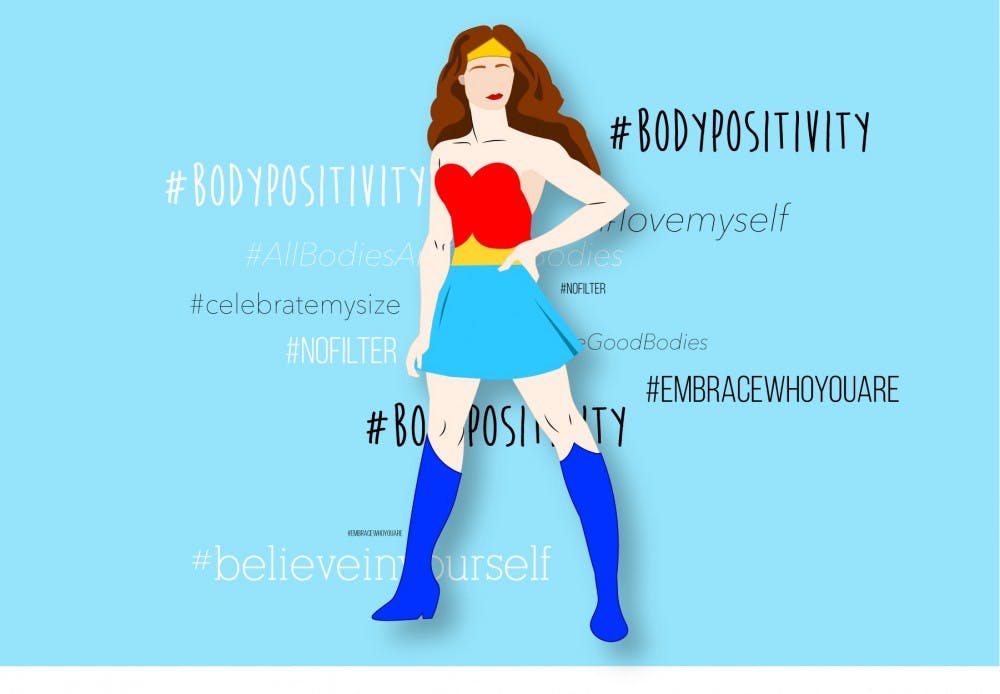If you’ve ever found yourself feeling down after scrolling through Instagram or Facebook, you’re not alone. But when used right, social media can actually enhance your life, make you feel happier and more confident.
I am the first to admit my addiction to Instagram. I usually check it when I first wake up, before I go to bed and several times throughout the day. The pretty photos, swirly quotes and endless filter options offer a fun and artistic outlet in the land of social media.
I recently noticed one day while scrolling through the app that besides the time drain (one minute of browsing can quickly turn into five, then 10, then 20 …), I never feel restless or unhappy after checking Instagram, the way we’re allegedly supposed to feel after looking at social media. I usually feel refreshed, motivated and creative.
How could this be possible? Isn’t social media supposed to drain our energy, make us feel like crap and give us major FOMO (fear of missing out)?
We haven’t been giving social media enough credit. It can be a powerful tool for motivating, educating and inspiring.
Bret Giles is a professor of “Social Media and Content Marketing” at ASU. He teaches students about how brands use social media and produce content to promote the message of their company.
He said that a crucial factor in communicating with consumers is to have an “alignment between what your goal is as a company and the people that you serve.”
Brands can capitalize on social movements, but only if they have done the work to be genuine and the message is “truly something that’s near and dear to their heart.” Giles offers Dove’s “Real Beauty" campaign as an example.
“Hopefully for most people they would see that as coming across as reasonably authentic,” Giles said. “Of course they want to sell a product. (But) they put a lot of energy into trying to make people feel good about themselves and who they are.”
The campaign aimed to change the way we think about beauty using digital tools. Since the campaign began more than 10 years ago, the videos went viral, including the 2013 one where women described themselves to a sketch artist, highlighting the self-deprecating ways we often talk about ourselves.
In 2014, Dove Canada launched a campaign with the hashtag #DovePositiveChange to spread positive responses to self-deprecating tweets.
In recent years, body positivity has been a crucial part of many social media campaigns on sites like Instagram and Tumblr, including hashtags like #Fatshion and Lane Bryant’s #ImNoAngel.
One of my personal favorites is bodyposipanda on Instagram, an account by Megan Jayne Crabbe that shares content encouraging users to love their bodies the way they are.
In addition to body positivity, social media can provide an empowering community for particular groups, such as feminists, by using tools specifically enhanced by the internet.
Sophia Benoit is a freelance writer in Los Angeles whose Twitter account @1followernodad boasts more than 40,700 followers at the time I’m writing this. Her Twitter account is an intersection of irreverent humor and profound social commentary.
If you brag about not being like other girls, we are glad you aren't like us.
— Sophia Benoit (@1followernodad) April 10, 2015
Benoit, who identifies as feminist, said humor can be a powerful tool of teaching.
“People are more likely to sit through a joke they don’t agree with than prose they don't agree with,” she said in an email interview. “And that can be the place where you start to slip things in for them. Show men how it is to be a woman with a tweet. Show white people what it means to be a person of color in a joke.
"I can’t tell you how many men I’ve had inbox me and tell me that they don’t really agree with my feminism," Benoit said. "But that they like my Twitter.”
Men: I'm won't date feminists
— Sophia Benoit (@1followernodad) September 8, 2016
Feminists: k
Men: ever
F: it's almost like I subscribe to whole movement that makes it safe for me to not care
*whispering to white people*
— Sophia Benoit (@1followernodad) August 30, 2016
protests aren't supposed to be convenient for the oppressor
Social media sites like Twitter offer a platform for users like Benoit to express themselves while also raising important issues and offering support to women and other groups.
“I’m certainly not writing my jokes for men,” she said. “It’s for women. It’s for the women who have been ignored, interrupted, groped, hit, erased, talked over, raped, assaulted, hit on and used. It’s for anyone who wants to laugh and scream at the wickedness of the system.”
Research in psychology has shown that social media keeps us connected, stimulates positive brain activity and teaches us multitasking and efficiency.
I don’t want to deny the negative consequences of social media, like cyberbullying and disordered eating habits. But we can all make an effort to fill our timelines with positivity, whether it's through a funny joke or a quote encouraging you to love yourself today. That way, we can get a jolt of confidence and joy when we check our social media accounts, instead of loneliness or dissatisfaction with our lives.
Let’s make social media work for us, not the other way around.
Reach the columnist at lallnatt@asu.edu or follow @LibbyAllnattASU on Twitter.
Like The State Press on Facebook and follow @statepress on Twitter.
Editor’s note: The opinions presented in this column are the author’s and do not imply any endorsement from The State Press or its editors.
Want to join the conversation? Send an email to opiniondesk.statepress@gmail.com. Keep letters under 300 words and be sure to include your university affiliation. Anonymity will not be granted.




